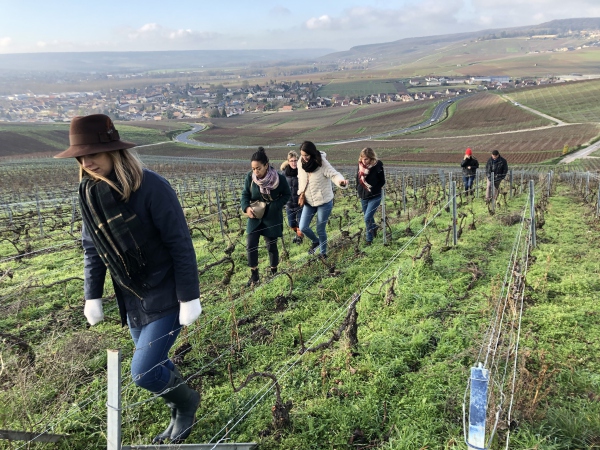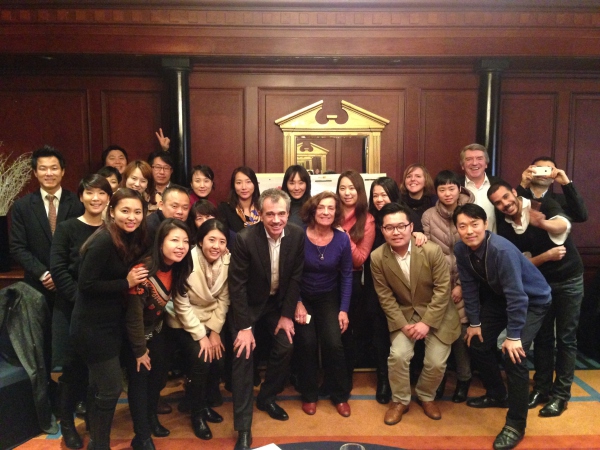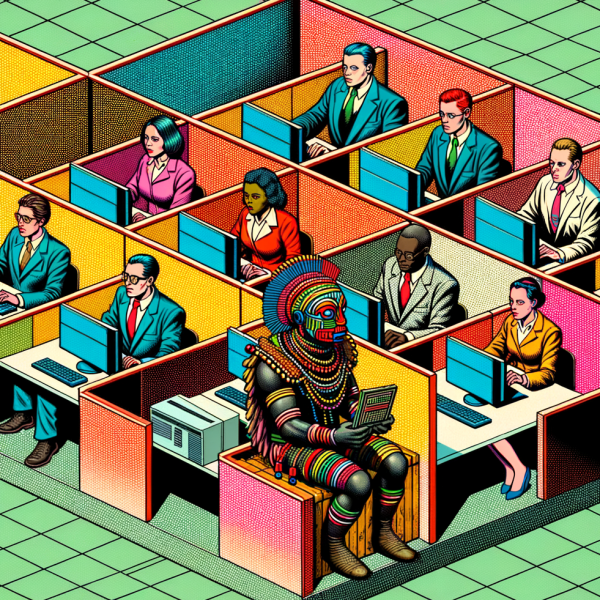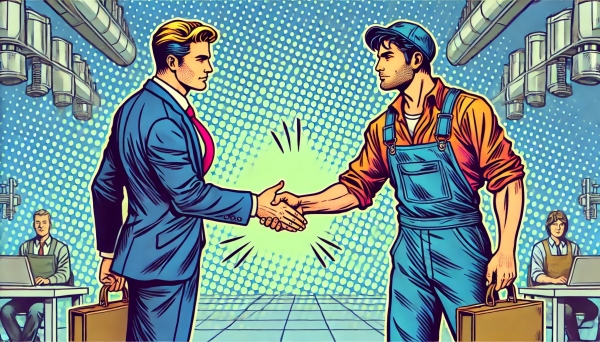Transformation
Cultural Transformation (AI, management, digital)
Establishing a culture and behaviors that enable every employee to contribute to the company's evolution.
Companies are facing a double disruption: the acceleration of technological transformations (generative AI, digitalization, automation) and the evolving expectations of employees regarding meaning and impact. While 77% of candidates research a company’s culture before applying (Glassdoor), only 23% of employees report being satisfied with their company’s current culture (Deloitte).
To succeed in their transformations and ensure growth, companies must create the conditions that allow each employee to understand, embrace, and implement their evolution strategies. Cultural transformation plays a key role in spreading change throughout the organization, establishing norms, and shaping representations that align with the company’s needs.
Your Challenges
- Aligning Culture and Strategy. Culture ultimately shapes strategy—what a company can achieve and become is defined by its cultural foundations. Misalignment between culture and strategy slows or even prevents execution.
- Moving Beyond a Functional Approach. The successful adoption of AI, digital tools, or new management practices goes beyond technology implementation. It requires embedding new behaviors, norms, and a collective capacity to integrate emerging drivers of performance.
- Strengthening Engagement and Autonomy. Workplace transformations generate both enthusiasm and uncertainty. Sustainable adoption hinges on co-creating new ways of working and empowering employees to take ownership of change.
- Equipping Managers as Cultural Ambassadors. Providing managers with the tools to embody and promote company values, ensuring alignment and long-term adoption.
- Avoiding Organizational “Snap Back”. Many companies invest in technological transformation but fail to sustain change, reverting to old habits due to weak cultural anchoring. Ensuring long-term impact requires embedding new ways of working into the company’s DNA.
Our Approach
- Mapping Existing Culture and Resistance to Change. We assess your current cultural landscape, identifying strengths and barriers to transformation. This analysis includes surveys, interviews, and collaborative workshops to gain a deep understanding of internal dynamics.
- Integrating Human Sciences. By leveraging organizational sociology and anthropology, we explore behavioral change drivers and engagement mechanisms. We focus on workplace relationships, communication tone, expectations, recognition, and perceived value within the organization.
- Co-Creating the Target Culture. Together with your teams, we define the behaviors that will support your strategic ambitions and facilitate innovation. These expected behaviors are translated into concrete, measurable actions embedded in your processes.
- A Collaborative and Phased Deployment. We engage managers and employees at every stage to ensure strong buy-in. Adoption pathways are structured through pilot projects, with collective rituals introduced to anchor new practices sustainably.
- Ongoing Performance Monitoring. We establish indicators to track cultural evolution and its impact on collective performance. Adjustments are made over time to ensure a deep, organization-led transformation.










